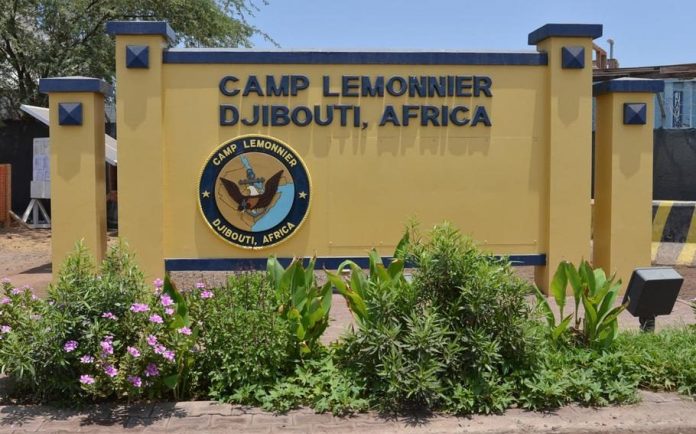The US is seeking to reassert its influence in the horn of Africa once more, given recent rise in tensions, and the growing presence of China and Russia in the region. Growing US interest in Africa as a whole was reflected in the US -Africa summit held in Washington December 13 – 15. One of the issues currently confronting the US is whether it should find a new location to host its military presence in the horn of Africa, as Djibouti’s ties to China and Russia could make it unsuitable from a US perspective.
Djibouti is currently home to the only permanent military presence for the US in the region, as it has an important Geo-Strategic location, overlooking the Red Sea and Bab El Mandab. Camp Lemouna is an important base for US military operations in Africa and the Middle East and is central to US efforts to combat terrorism in the horn of Africa. US assessments consider terrorist groups currently active in the region and loyal to Al-Qaeda, such as Al Shabab and Al Qaeda in the Arab Peninsula, to remain cross border threats.
The US State Department has long considered Djibouti, due to its geographic location, as a strategic partner of the US in achieving peace and stability and delivering humanitarian aid to this troubled region, with ongoing crises in Yemen and Somalia. However, some lawmakers and members of the think tank community in Washington have started to propose Somaliland as an alternative base for US operations in the Horn of Africa.
An unsuitable environment
Several arguments have been put forth in support of moving US military presence out of Djibouti, including the presence of several foreign military bases there. Djibouti relies heavily on hosting foreign military bases as a source of hard currency. It hosts a large French base, and Japan established its first military base abroad since the end of WWII there in 2011. NATO has an office in Djibouti to support efforts to combat piracy since 2015. China established its first military base abroad in Djibouti in 2017, and Italy as well maintains a military presence there.
This has raised concerns for the US, as it sees itself in strategic competition with some of these countries, particularly China. US assessments note that China is expanding its military presence in Djibouti and that its current naval base their can help to maintain and support up to 4 attack submarines that are nuclear capable. The Chinese presence is only 6 miles from the US base, which is its largest in Africa, and fears of some form of confrontation there are increasing. The US has previously raised concerns, in May 2018, that personnel on China’s military base had been pointing lasers at US military planes, a claim China vehemently denied at the time.
There are concerns in some US quarters that China’s rising influence in Djibouti could allow it to exert pressure on authorities there to ask the US to remove the base. Although there has been no indication that the Djibouti government will do so, it has the legal right to ask Washington to do that at any time.
An alternative in Somaliland?
The Wall Street Journal revealed last February that Somaliland offered to host a US base with naval and airport facilities in return for asking for the US recognizing its independence as a sovereign state. Somalia, which has strong ties to the US, continues to refuse to recognize Somaliland’s independence and views it as part of the state of Somalia. The president of Somaliland, Muse Bihi Abdi visited the US last March, apparently to argue this case.
The US, on its part, appears to be taking steps towards assessing the viability of this proposal, as there have been several visits by US officials to Somaliland in the past months. Stephen Townsend, former commander of the US Africa Command “AFRICOM” visited on May 12th, representing the highest-ranking US military figure to visit since 1991. There were also visits by US Ambassador to Somalia Larry Andre and other US officials. The aim of Townsend’s visit was to evaluate the suitability of the port of Berbera, as well as the newly renovated airport. The location of Somaliland would be especially useful in confronting “Al-Shabab” movement, which has been launching attacks on the central government in Somalia for over a decade.
It is noteworthy that some US legislators have been pressing the US government to step up defense cooperation with Somaliland, as they perceive it to be stable and democratic, in the context of a volatile and unstable region: The security situation in Somalia has deteriorated, Ethiopia has been undergoing a civil war, and democratic transition in Sudan has faltered.
Somaliland is actively promoting itself as a candidate able to confront growing Chinese influence on the continent, demonstrated by signing, in July 2020, an agreement to establish representation offices with Taiwan. This step has angered the Chinese government as it circumvents Chinese attempts to isolate Taiwan.
Constraints
There are a variety of considerations that may undermine Somaliland as an alternative base for US military presence in Africa. The US is keen to maintain strong relations with the central government of Somalia, as the Biden administration is committed to the long-established US goal of maintaining the unity and territorial integrity of the Somali state. Moreover, Somaliland is insisting on achieving recognition of independence from the US before agreeing on any military arrangements. Therefore, the possibility has been raised of using Somaliland’s port and airport for emergency operations, rather than as a substitute to the base in Djibouti, as the latter does not impose any restrictions on the type or purpose of the military actions that can be carried out from the US base on its territory.
The post was first run by Arab Wall in December 2022





























